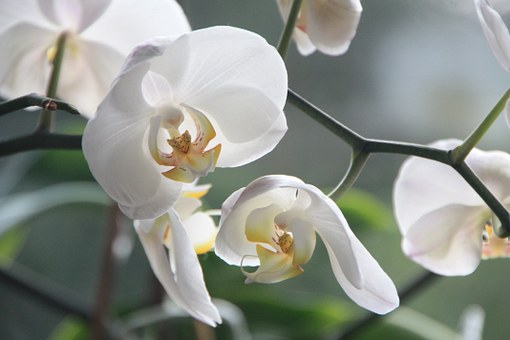What is an epiphytic plant? In a simple way, it can be said that it is a plant that can thrive and grow without sprouting in the soil. It grows mostly on trees, but it is not a parasitic plant. Their host uses these types of plants rather as a support. Over time, epiphytic plants have adapted to the conditions in which they grow.
10.5.2017
What is an epiphytic plant? In a simple way, it can be said that it is a plant that can thrive and grow without sprouting in the soil. It grows mostly on trees, but it is not a parasitic plant. Their host uses these types of plants rather as a support. Over time, epiphytic plants have adapted to the conditions in which they grow.

Some types of epiphytic plants
Epiphytic plants are represented in many families. We sort of different types of orchids, bromelates, cacti, ferns, heathers and many other plants suitable for epiphytic cultivation in
winter gardens.
Suitable conditions for growing epiphytes
These plants are suitable to grow in containers in special substrates that are very airy, calcium-free, slowly decomposing. Such substrate can be purchased in garden centers. However, epiphytes can be grown by a so-called block culture, when they are attached to natural materials (strains, branches). Plants are attached to these materials by thin (insulated) wire, line, as well as glue.
Light conditions for epiphytic plants
Epiphytes are highly adaptable and can adapt to strong sunshine and long-lasting shade, but they will best thrive in light, but not direct. The south-east or southwest-oriented conservatory is ideal. Or a shadowy shadow that can "break" direct sunlight.
Thermal conditions
Correct determination of temperature depends on the particular plant species. A basic estimate can be obtained with the knowledge of the climate in which the plant naturally lives. Epiphany can surprise us with its resilience. Generally, however, it is not good to expose the plant to the plants to thrive. Even among epithets there are plants that require a period of vegetative tranquility, ie they need to reduce the usual temperature for a certain period of time.
Humidity and watering
Water can absorb epiphytic plants from air humidity. In the case of grout we water in the optimal case with rain water, in winter we can dissolve the snow. We always avoid water from the waterline that is chlorinated. If you want to water this water, it is best to cook it. Frequently, well water is not suitable due to its hardness. Hard water in general, with long-term use, is a burden for the plant and degrades the substrate. The frequency and intensity of the dressing depends very much on the humidity in the winter garden.
Tip:
It is good to realize that in the case of successful plant growing, it is almost incompatible to cultivate species from different geographical areas together. In such cases, there will always be some plant in our conservatories, which will be at the expense of excellent cultivation conditions, other plants will suffer and disintegrate.


